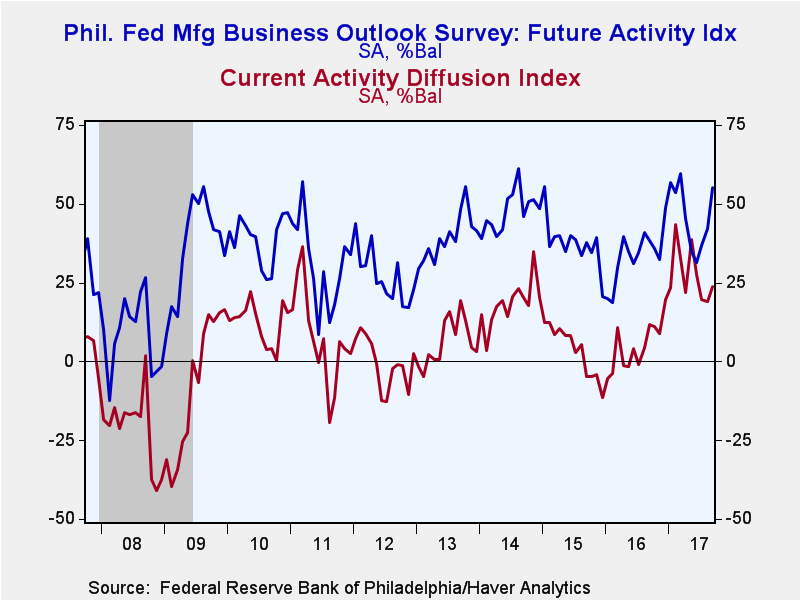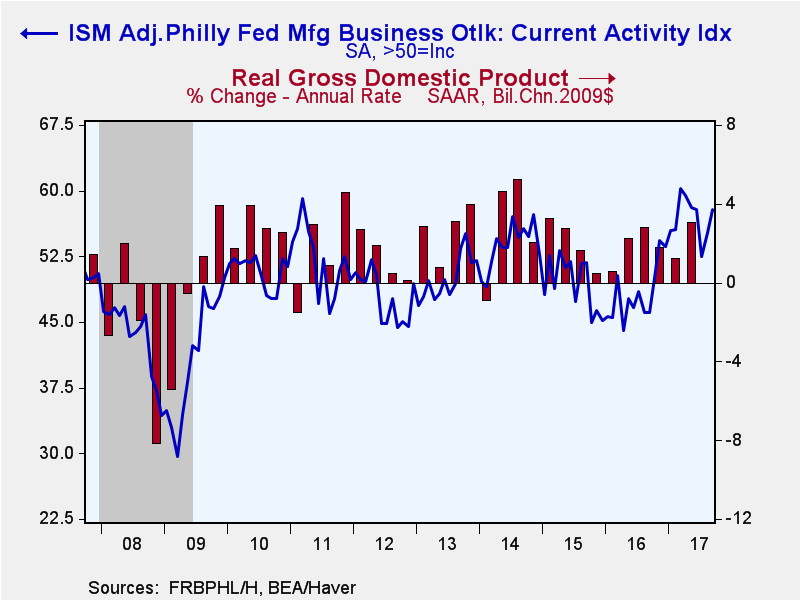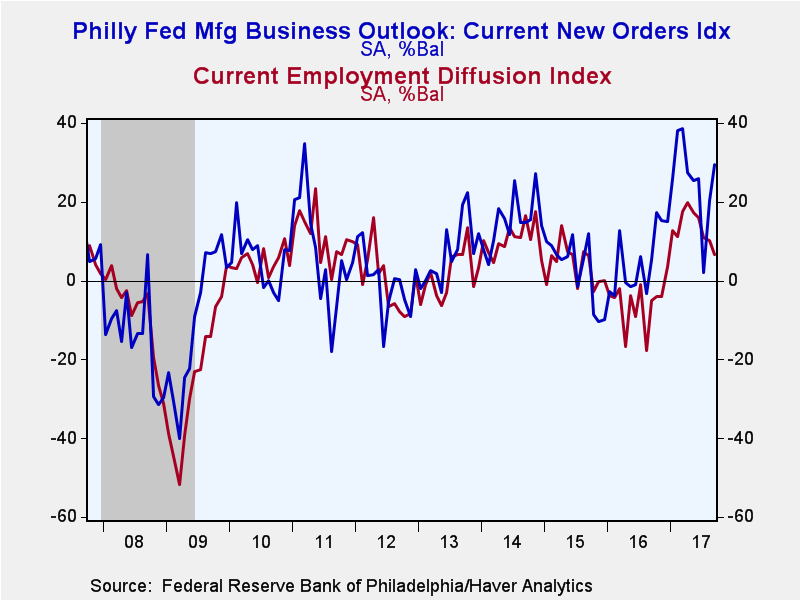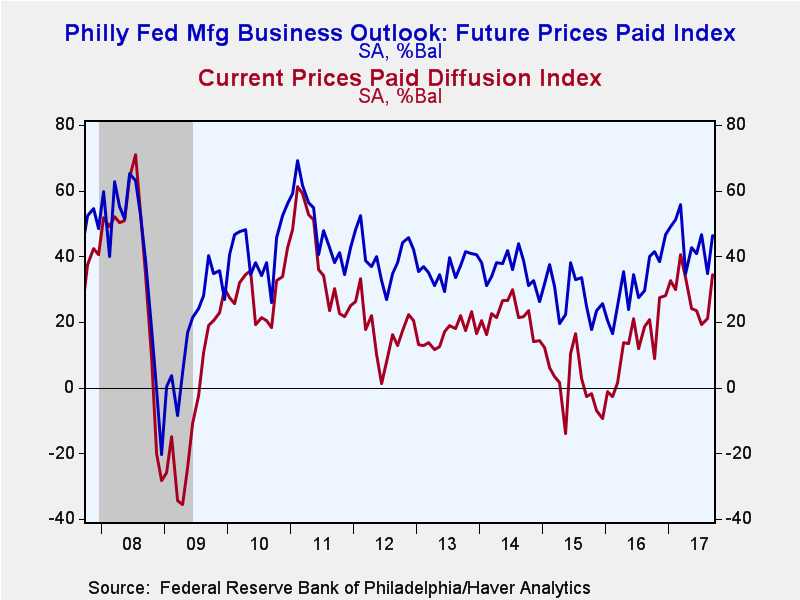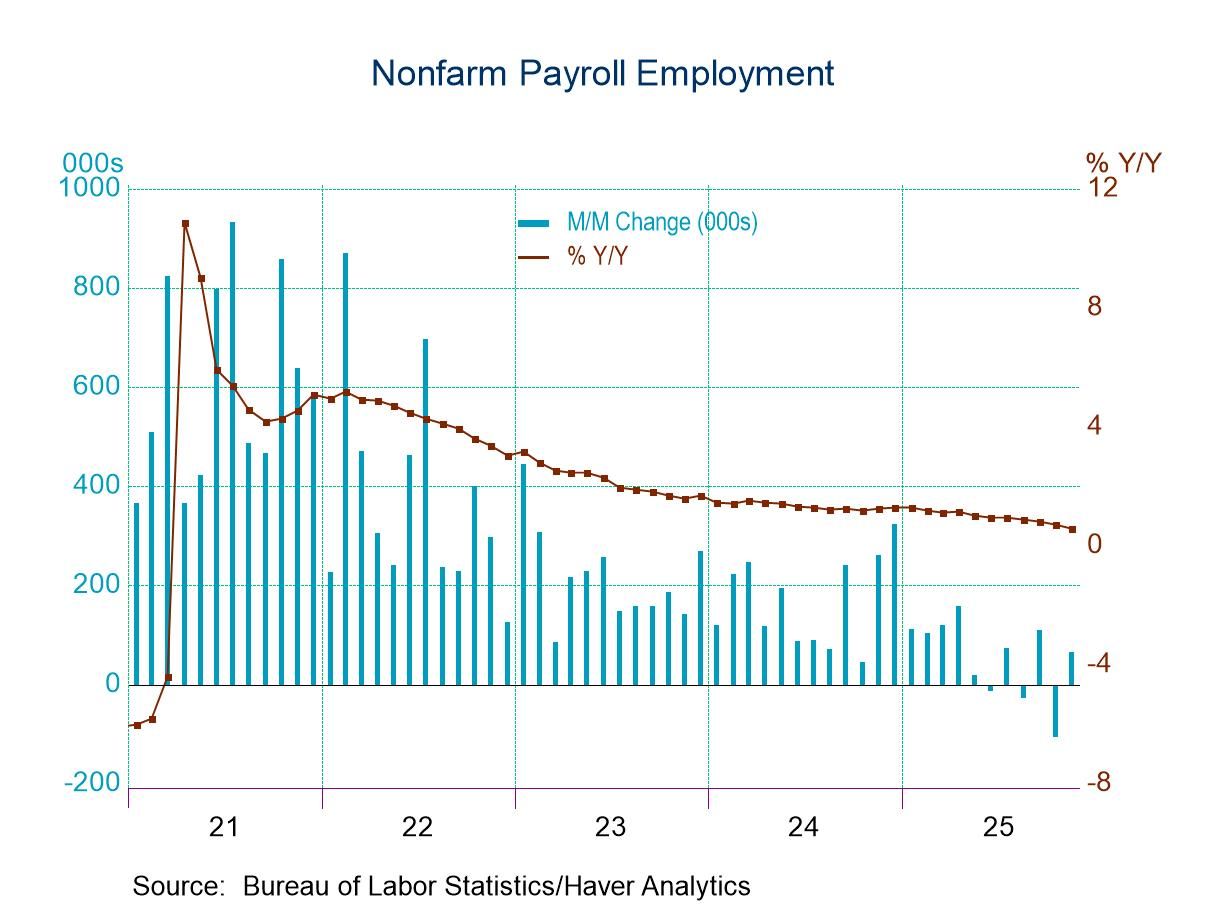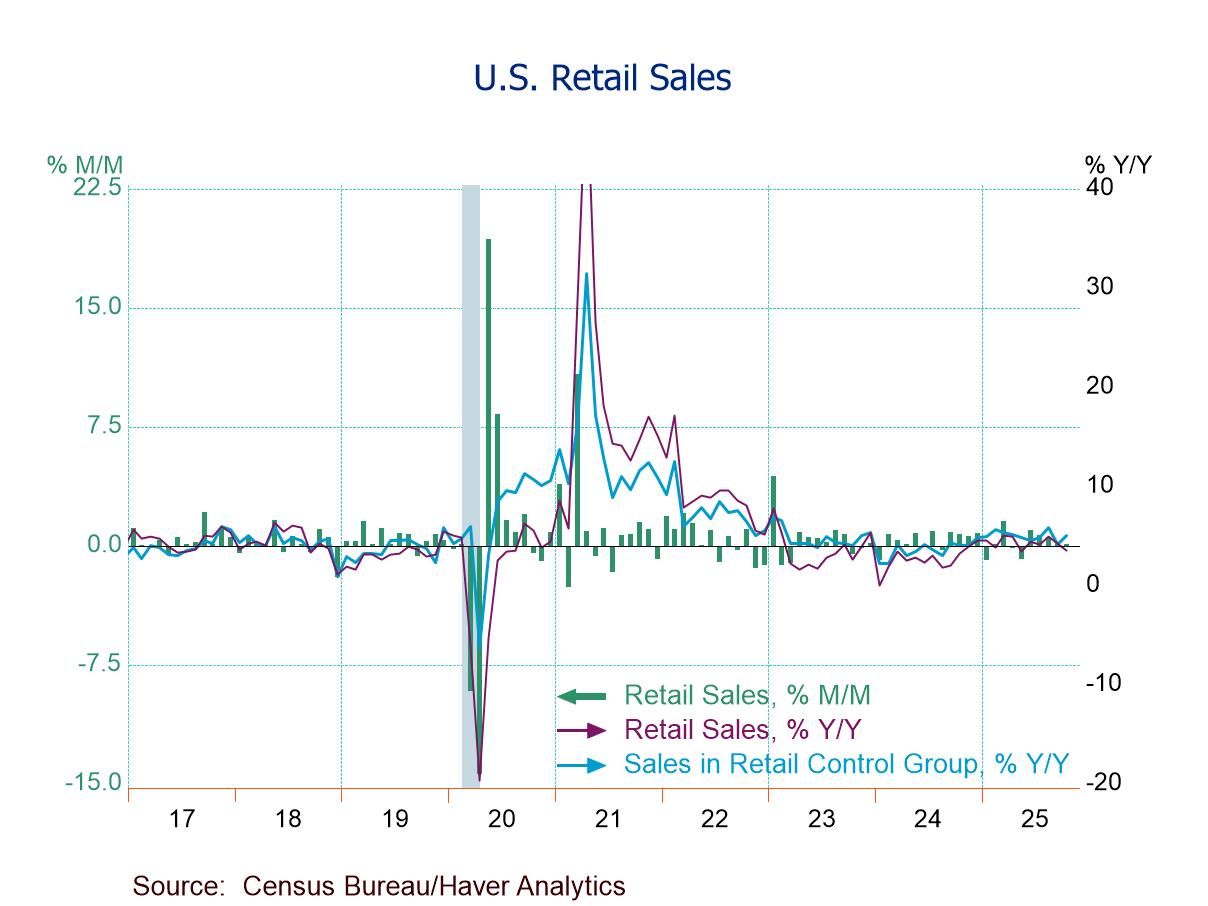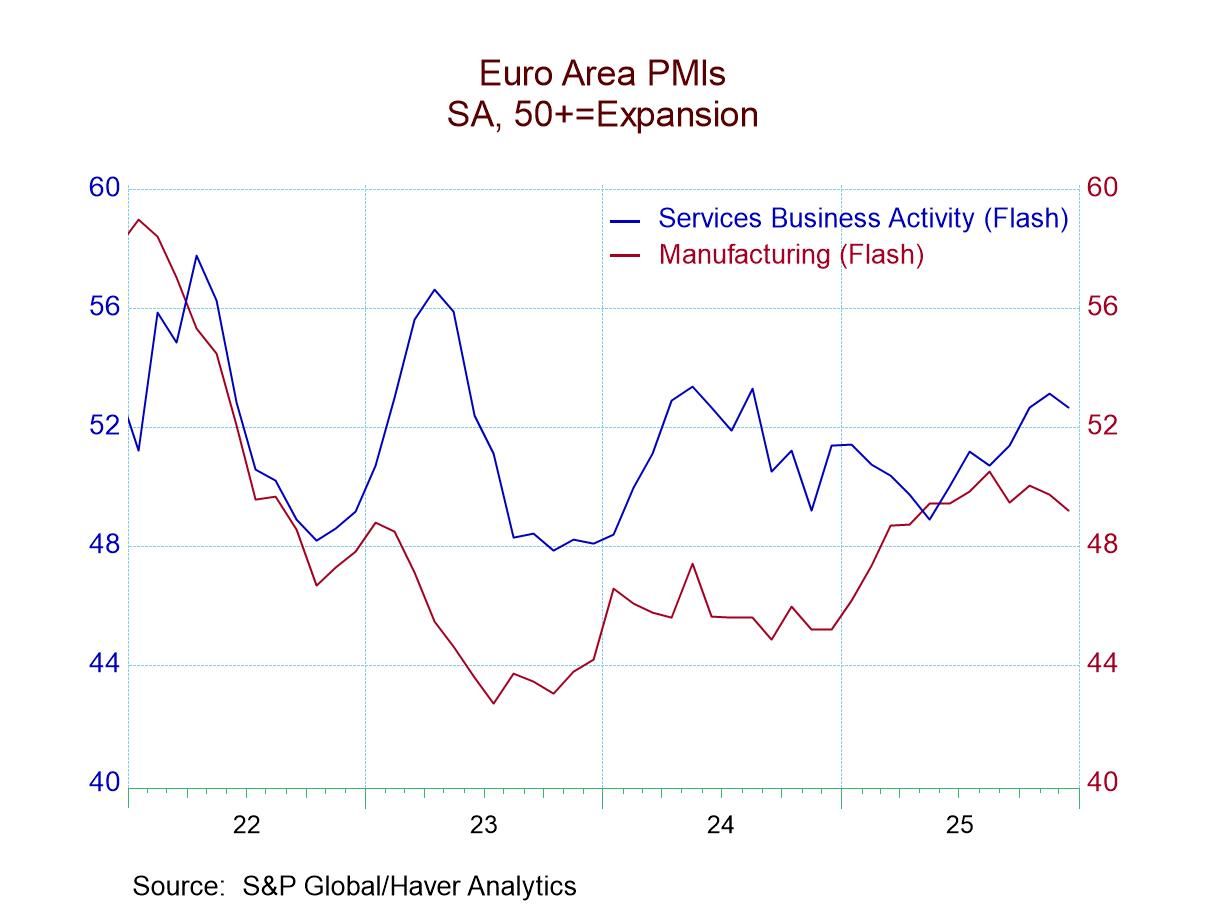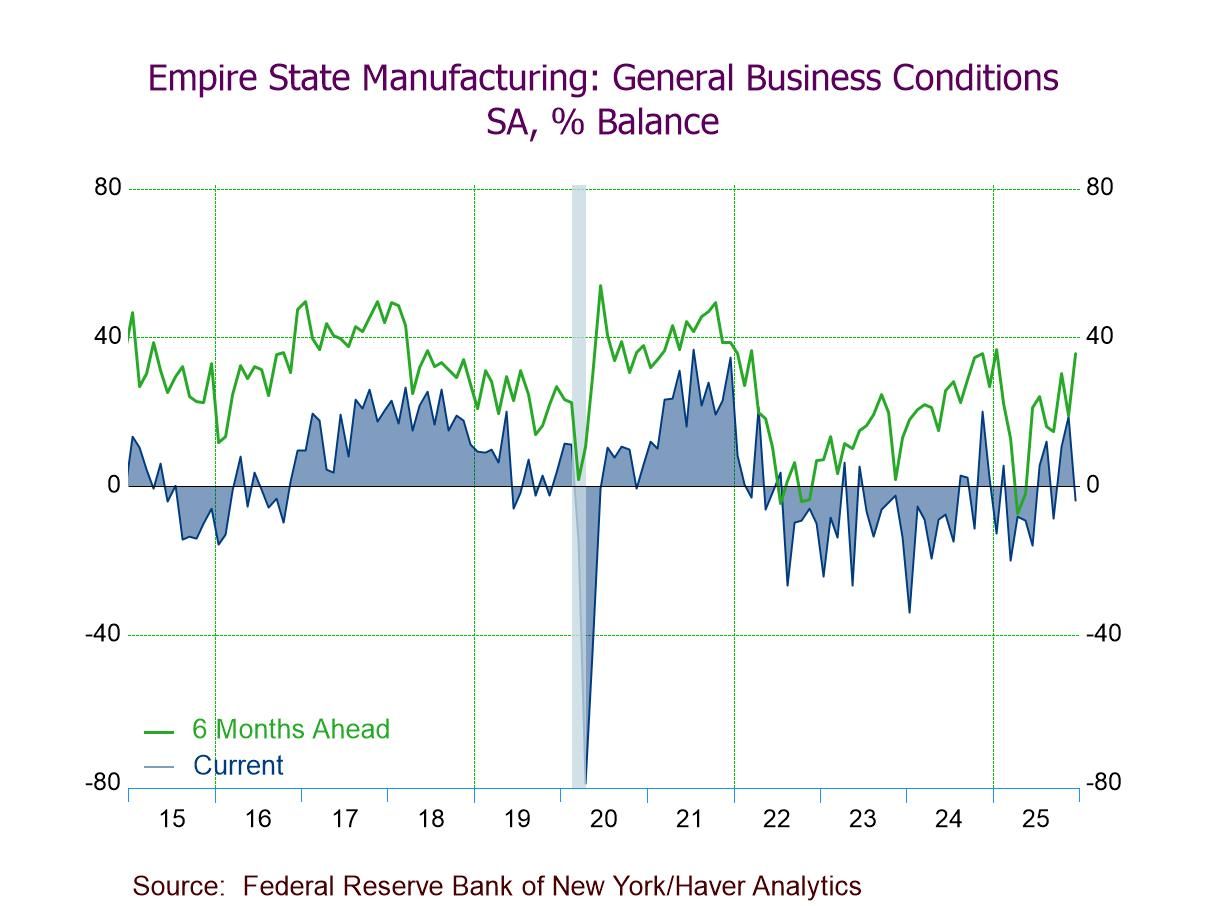 Global| Sep 22 2017
Global| Sep 22 2017Philadelphia Fed Factory Conditions Index Rebounds
by:Tom Moeller
|in:Economy in Brief
Summary
The Philadelphia Federal Reserve reported that its General Factory Sector Business Conditions Index increased roughly five points to 23.8 during September following declines during the prior two months. The figure compared to [...]
The Philadelphia Federal Reserve reported that its General Factory Sector Business Conditions Index increased roughly five points to 23.8 during September following declines during the prior two months. The figure compared to expectations for 18.0 in the Action Economics Forecast Survey. Roughly 39% of firms reported an improvement in business activity while 15% reported deterioration.
The ISM-Adjusted General Business Conditions Index constructed by Haver Analytics rose to 57.9 this month, but remained below the March high of 60.2. This figure is comparable to the ISM Composite Index. During the last ten years, there has been a 71% correlation between the adjusted Philadelphia Fed Index and real GDP growth.
The increase in the overall current conditions index reflected broad-based component improvement. The new orders, shipments, delivery times and inventory indicators each rose.
The employment series moved the other way, and declined to the lowest level in nine months. Nevertheless, 18% of respondents raised job levels while 12% lowered them. During the last ten years, there has been a 74% correlation between the jobs index and the m/m change in manufacturing sector payrolls. The average workweek reading also fell following sharp improvement in July.
The prices paid measure strengthened to the highest level in six months. Thirty-eight percent of respondents (NSA) reported paying higher prices, while three percent paid less. The prices received index improved and was just below January's high.
The index measuring expected business conditions in six months jumped to 55.2 from 42.3. It was the highest level since March and reflected higher readings for new orders, shipments, prices paid and the employee workweek. Though the employment reading eased m/m, 36% of respondents expected to raise hiring while six percent expected a decrease.
The survey panel consists of 150 manufacturing companies in Federal Reserve District III (consisting of southeastern PA, southern NJ and Delaware). The diffusion indexes represent the percentage of respondents indicating an increase minus the percentage indicating a decrease in activity. The ISM-adjusted figure, calculated by Haver Analytics, is the average of five diffusion indexes: New orders, production, employment, supplier deliveries and inventories with equal weights (20% each). Each diffusion index is the sum of the percent responding "higher" and one-half of the percent responding "same."
The figures from the Philadelphia Federal Reserve can be found in Haver's SURVEYS database. The Action Economics figure is available in AS1REPNA.
| Philadelphia Fed - Manufacturing Business Outlook Survey (%, SA) | Sep | Aug | Jul | Sep'16 | 2016 | 2015 | 2014 |
|---|---|---|---|---|---|---|---|
| General Factory Sector Business Conditions | 23.8 | 18.9 | 19.5 | 11.6 | 4.8 | 3.6 | 18.3 |
| ISM-Adjusted Business Conditions | 57.9 | 55.2 | 52.5 | 46.1 | 48.2 | 49.4 | 53.7 |
| New Orders | 29.5 | 20.4 | 2.1 | 5.3 | 4.9 | 3.0 | 14.9 |
| Shipments | 37.8 | 29.4 | 12.2 | 1.4 | 6.9 | 3.1 | 16.3 |
| Unfilled Orders | 17.0 | 14.5 | 7.2 | -8.1 | -5.5 | -5.1 | 3.3 |
| Delivery Time | 14.5 | 10.5 | 7.4 | -6.4 | -4.6 | -4.1 | 0.6 |
| Inventories | -1.4 | -6.1 | 0.7 | -24.8 | -9.7 | -1.5 | 1.7 |
| Number of Employees | 6.6 | 10.1 | 10.9 | -5.1 | -5.7 | 3.9 | 10.5 |
| Average Workweek | 11.9 | 18.8 | 3.8 | -8.8 | -5.5 | -1.8 | 3.9 |
| Prices Paid | 34.4 | 21.1 | 19.1 | 20.8 | 13.5 | 1.5 | 21.6 |
Tom Moeller
AuthorMore in Author Profile »Prior to joining Haver Analytics in 2000, Mr. Moeller worked as the Economist at Chancellor Capital Management from 1985 to 1999. There, he developed comprehensive economic forecasts and interpreted economic data for equity and fixed income portfolio managers. Also at Chancellor, Mr. Moeller worked as an equity analyst and was responsible for researching and rating companies in the economically sensitive automobile and housing industries for investment in Chancellor’s equity portfolio. Prior to joining Chancellor, Mr. Moeller was an Economist at Citibank from 1979 to 1984. He also analyzed pricing behavior in the metals industry for the Council on Wage and Price Stability in Washington, D.C. In 1999, Mr. Moeller received the award for most accurate forecast from the Forecasters' Club of New York. From 1990 to 1992 he was President of the New York Association for Business Economists. Mr. Moeller earned an M.B.A. in Finance from Fordham University, where he graduated in 1987. He holds a Bachelor of Arts in Economics from George Washington University.


